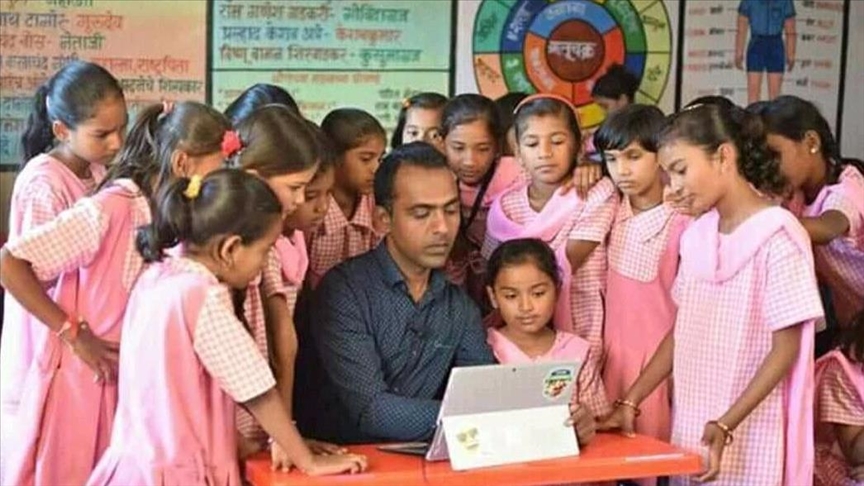NEW DELHI, INDIA
India needs to equip teachers with better techniques and technology in order to provide the best education to “students of the 21st century,” said an Indian school teacher, who won the UN-backed Global Teacher Prize in 2020.
He was speaking to Anadolu Agency on the eve of Teachers Day to be marked in India on Sept. 5.
Ranjitsinh Disale, 33, a primary school teacher from a village in the western Maharashtra state won the $1 million Global Teacher Prize, founded by the Varkey Foundation, and organized in partnership with UNESCO.
Disale, who is widely recognized for his efforts in promoting girls’ schooling, and the brain behind the QR code-based textbooks said India needs “student-centric policies” which would give freedom to students to “learn whatever they want, and wherever they want.”
“We need to equip them (teachers) with better techniques and technology. In India, teachers of the 21st century need 21st-century teaching techniques,” he said.
“During the pandemic, teachers were trained as to how to teach online, but at the same time, the students were not trained how to learn online,” he added.
“Right now, the way of training the teachers in India is outdated. We should now move from traditional to modern (techniques). We should also follow what is happening in the classrooms (to determine) whether that training is being used effectively. There is no mechanism in the education system to measure the performance of the teachers after they are trained,” Disale said.
He said teachers are not getting the due respect, adding that teachers should be allowed to focus on teaching and not be asked to do other duties that are not related to their expertise.
“During the pandemic, we saw at many places, they were asked to do duties outside the school like managing the crowd. At many places, they are involved in vaccination,” he went on to say.
Commenting about his work to promote girls’ education, Disale said that empowering students, particularly girls, is the need of the hour.
“My personal opinion is that we should start investing in girls’ education, their potential has not been discovered yet. We need to empower the girls,” he said.
“Because a large number of girls are dropping out of school. I think the time has come to act. It is for every government,” he added.
He said during any problematic situation, like the ongoing pandemic, “girls are the first ones, mostly in rural areas, who drop out from the schools. They are the last one to come back to schools.”

